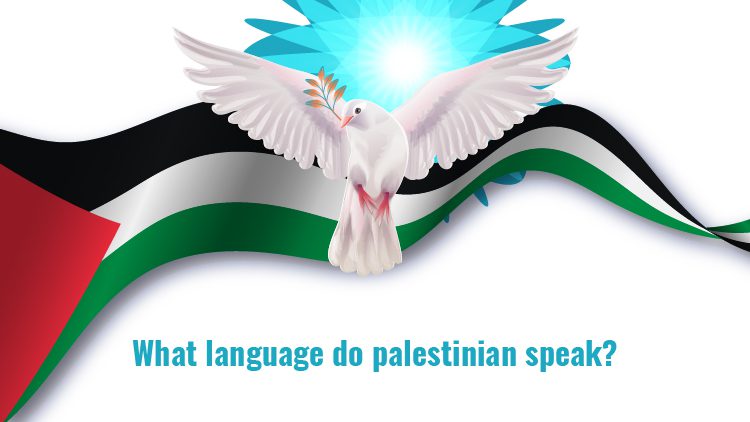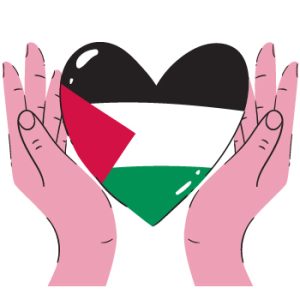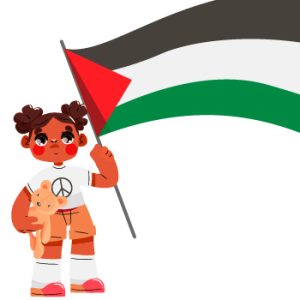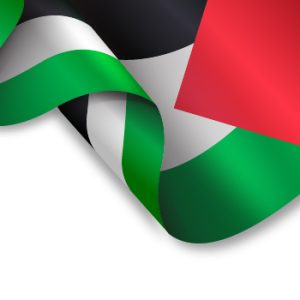What Language Do Palestinian Speak?

The Language of Palestine: A People Divided
The common misconception of the English-speaking world is that Palestinians all speak Arabic; however, this couldn’t be further from the truth. There are actually two dialects that both fall under the category of Arabic: Palestinian and Standard Arabic (SA). Here’s what you need to know about the languages of Palestine.
A Brief History
Palestinians are a people who have been divided for centuries. The 11th century saw the first wave of Muslim conquests in the Levant, which resulted in the Hebrew language becoming a secondary language in Palestinian society. However, Jewish communities continued to exist in the region throughout the centuries.
The 7th century saw the rise of Islam, and Arabic became the primary language of Palestinian populations. English became a dominant language in the 20th century, but Arabic remains an official language.
Israeli soldiers commonly speak Hebrew, while residents of Gaza City and the Gaza Strip typically speak Arabic dialects. Among the most popular foreign languages are English, French, Russian, German and Spanish. Israelis often use different languages to denote their religious identity – for example, Jews will use Hebrew or Yiddish.
Arabic is also widely used by Muslims. In one survey conducted among Arab university students, 78% spoke at least one other language besides Arabic as their mother tongue. In addition to written texts in each region’s local languages, there are four major spoken dialects that differ from each other: Egyptian (81%), Jordanian (5%), Lebanese (2%) and Syrian (1%).
The Egyptian dialect is considered standard for understanding the Quran because it was originally created with that purpose in mind. Other popular common languages spoken in Columbia include Quechua, Wayuu, and Muisca. However, there are also a number of Indigenous

Arabic Isolate in Palestine
Palestine is a country that is largely Arabic-speaking. However, there are also many other languages spoken in Palestine, including English, Aramaic, and Semitic languages. The Arabic language is the official language of Palestine, but many Palestinians also speak English as a second language. There are a variety of dialects spoken in different parts of the country, but the most commonly spoken dialect is Levantine Arabic.
In addition to this type of Arabic, some Palestinian Arabs speak one or more varieties of Arabic, such as Egyptian Arabic or Syrian Arabic, while others may be bilingual in both Hebrew and Arabic. Those who live close to the border with Israel may also speak Hebrew. The three dominant languages of the Palestinian people are Arabic, Hebrew, and English.
These three languages serve both social purposes and official purposes, such as government business, public speeches by politicians, media broadcasts from news outlets, law codes enacted by parliamentarians, etc. Arabic is the mother tongue for many people living in Palestine; however, it is not an official state language because it was adopted after 1948 when Palestine became an occupied territory under Israeli rule.
Despite being limited to an unofficial status until recently, over 100 years ago, efforts were made to promote its use as a vernacular so that citizens could communicate without having to learn another colonial language imposed on them during British occupation in 1917.

Arabic Influences
The Arabic language has had a profound influence on the Palestinian people, both historically and in modern times. The English language, while commonly spoken in Palestine, is not the first language of most Palestinians. Aramaic, the ancient language of Jesus Christ, is still spoken by some Palestinians.
The Arabic language has been essential to the development of Palestinian identity and culture. Without it, many aspects of Palestinian history would be unknown.
During the era of Roman rule, Latin became the official language used in legal documents and inscriptions throughout what was then called Palaestina. For example, the Jewish Temple at Jerusalem was destroyed by Romans in 70 AD; however, an inscription from that time can be found that refers to the vineyard owner’s son Ploni (Palestina).
Aramaic also played an important role in shaping cultural identity during this period as well as earlier periods when Hebrew had been widely used for administrative purposes. Many scholars have speculated that Judeo-Aramaic dialects may have developed into the Yiddish languages spoken by Jews around Europe.
However, today, these dialects are only occasionally heard among older generations of Palestinian Arabs who came from villages where there were many Armenians or Assyrians. While Judaism shares its roots with Christianity and Islam, other religions native to Palestine include Samaritanism, Druze and Bahai.
These religions all use their own unique languages or scripts which are based on old forms of Hebrew or Aramaic. In addition to these influences, recent immigrants have brought with them different languages, including Kurdish, Russian and Chinese, which are now being taught in schools as second languages alongside Arabic.
Other Languages Spoken in Palestinian Territories
The Palestinian Territories are home to a number of different languages, the most common of which is Arabic. However, Aramaic is also spoken by a significant portion of the population. Other languages spoken in the Palestinian Territories include English, Hebrew, French, and Spanish. Many people speak these other languages as their second language because they were taught at school or work. Arabic is still the dominant language, with over 90% of Palestinians speaking it as their first language. As such, Arabic is the official language of both the state of Palestine and the West Bank. There are four dialects that exist within Palestinian territories, including Standard Eastern, Western Arabia Jordanian (spoken primarily in Jerusalem), North Levantine (spoken primarily in Hebron), and Egyptian (spoken primarily in the Gaza Strip).
Each of these dialects contains slight variations from one another and from Arabic as a whole. For example, whereas standard Arabic has two genders for nouns, Eastern Palestinian has three – masculine, feminine, and neuter. Some features found in this variety of Palestinian Arabic include word order changes for emphasis, verb tense differences, the use of eh for yes, special endings added to some words, and the incorporation of Aramaic words.
Other Languages Spoken In Palestine
In addition to Arabic, which is the official language of the Palestinian National Authority, English and Hebrew are also widely spoken. Palestinian Arabic dialects are similar to those spoken in other Arab countries, but there are also some differences. For example, urban dialects tend to be more influenced by Modern Standard Arabic than rural dialects.
Urban dialects is embraced by many. Palestinian English often has a distinctive accent and vocabulary. Palestinian Hebrew, on the other hand, is quite different from Israeli Hebrew. It’s mostly used by Palestinians who live in Israeli settlements or have contact with Jewish populations. In this way, it’s unique among the many languages that have been spoken by indigenous people for centuries.
The conflicts in this region might make it difficult for all of these languages to thrive for long periods without outside support, although as long as enough people speak them and children continue to learn them fluently, they should not die out completely.
Palestinian Arabic Dialects
Palestinian Arabic is a linguistic border dialect. It is native to the Arab citizens of Palestine and Palestinian speakers in the diaspora. The Palestinian Arabic dialects are variations of Levantine Arabic, which developed in the 3rd century, with influence from other languages such as Aramaic, Hebrew, Turkish, and English.
In the twentieth century, as a result of language contact and national movement, there was an increase in variation, and different Palestinian Arabic dialects began to emerge. Today, Palestinian Arabic is spoken by Palestinian citizens inside and outside of Palestine, as well as by Arab citizens of Israel.
It is also one of the two official languages of the State of Palestine, along with Modern Standard Arabic. Its use outside the Middle East has historically been very limited due to the negative associations it has with Palestinian nationalism.

Palestinian-Israeli Language Conflict
The Israeli-Palestinian conflict has been going on for centuries, and one of the main issues at hand is the language barrier. Palestinians have their own Arabic dialect, which can be difficult for Israelis to understand. This conflict was brought to light in the 19th century when African languages were introduced into the region. However, African languages did not remain for a long time. Palestinian Arabic speakers began to use these new languages in their daily lives, which caused a rift between the two groups.
In the 21st century, this conflict has continued, with both sides using different languages in their respective administrative agencies. This has led to a situation where native speakers of both Arabic and Hebrew are at a disadvantage. For example, Arabs who cannot speak Hebrew find it very difficult to communicate with Israeli people who speak only Hebrew. Similarly, Arab speakers who don’t speak English or French cannot read any documents published by Israel’s Central Bureau of Statistics because they’re all written in English or French.
Interesting Facts About The Words That Are Used In Palestine (For Speakers of Different Languages)
In addition to Arabic, English and Hebrew are also widely spoken in Palestine. However, the language variation doesn’t stop there. In fact, according to the prime minister, over 30 different languages are spoken throughout the country! There’s a lot of cultural diversity for such a small country. What languages do Palestinians speak? Palestinians often speak their own dialect of Arabic (called Levantine) as well as Western-influenced Levantine, Jordanian, Egyptian and Iraqi Arabic.
There are about 120 dialects in all. Many Christians speak Armenian or Greek; Druze speakers may use Lebanese or Syrian dialects. For Jews living in Israel who come from Arab countries other than Iraq, the languages they speak at home depend on where they came from: Moroccan Jews may use Moroccan Judeo-Arabic; Iraqi Jews will probably use Iraqi Judeo-Arabic; Yemenite Jews might have another form of Yemeni Jewish Aramaic called Haketia. All these variations make up Palestinian identity!

Overview of Languages Spoken In Palestine
The Palestinian population is a linguistic melting pot, with Hebrew speakers, Arabic speakers, and those who spoke Aramaic dialects in the 9th century all represented. The type of border between Israel and Palestine has a big impact on which languages are spoken.
Societal borders within Palestine can also lead to different dialects being spoken in different areas. Bilingual community education in both Arabic and Hebrew is important for Palestinian children. There are also efforts to standardize an urban dialect of Arabic that can be used across all of Palestine.
Why Palestinians Speak Arabic
Palestinians typically speak Arabic because of historic population movements and the dialects that have formed across political borders. The Arab population in Palestine is thought to have 9th-century origins, and the presence of a Jewish population only dates back to around the 11th century.
The prime minister of Israel has stated that Arabic is an official language in Israel, used by administrative agencies and Indigenous people alike. However, there are some Israeli settlements where Palestinians are not allowed to use Arabic. This creates a linguistic border between Israelis and Palestinians.
The Varieties of Arabic Speakers In Palestine
There are a number of dialects of Arabic spoken in Palestine, which can be divided into two main groups: Palestinian Arabic and Jordanian Arabic. Palestinian Arabic is further divided into two sub-dialects: Gaza Strip Arabic and West Bank Arabic. Jordanian Arabic, on the other hand, is divided into three sub-dialects: North Jordanian Arabic, Central Jordanian Arabic, and South Jordanian Arabic.
The different dialects of Arabic spoken in Palestine are a result of the various conquests and migrations that have taken place in the region over the centuries. The Arabs who first settled in Palestine during the 9th century spoke a form of Classical Arabic, which served as the basis for all subsequent dialects that developed in the region.
Israeli Language – Hebrew Language Vs. Palestinian (Arabic)
There are many languages spoken in Israel, but the two main ones are Hebrew Language and Palestinian Arabic. These two languages have a long history, dating back to the 9th century. Palestinian Arabic is a dialect of Arabic that is spoken across borders, while Hebrew is the official language of Israel. Many people in Israel learn both languages, as they can be useful in different situations. For example, Arabic is often used in class or when dealing with official business, while Hebrew Language is more commonly used in everyday conversation.
Significance Of This Fact
The fact that Palestinian Arabs share a common language is significant for several reasons. First, it demonstrates that Palestinian Arabs have a common identity despite living in different countries. Second, it shows that the Palestinian Arab culture is alive and well despite attempts by Israel to destroy it. Third, the use of Arabic allows Palestinians to communicate with each other across borders. Fourth, Arabic is the language of Islam, and so speaking, it allows Palestinians to maintain their religious identity. Fifth, Arabic is a very old language, dating back to the 9th century. Sixth, there are many different dialects of Arabic spoken by Palestinians, which shows the richness and diversity of the Palestinian Arab culture. Seventh, learning Arabic can be a way for people from other cultures to connect with Palestinians and learn about their culture.
Frequently Asked Questions
Palestinians speak Arabic, Hebrew, English, and French, with some Palestinian Christians still speaking the ancient Aramaic language.
Palestinians are often bilingual, speaking Arabic and Hebrew, with regional language preferences depending on where they live.
Palestine’s language situation is complex, with Palestinians speaking Arabic, Hebrew, and English, influenced by historical and regional factors.
Palestinians officially speak Arabic and English, with Levantine Arabic being the most common dialect in Gaza, the West Bank, and nearby regions.
Palestinian Arabic, a Levantine dialect, has distinct expressions, vocabulary, and pronunciation, differing from Gulf, Egyptian, and North African Arabic.




